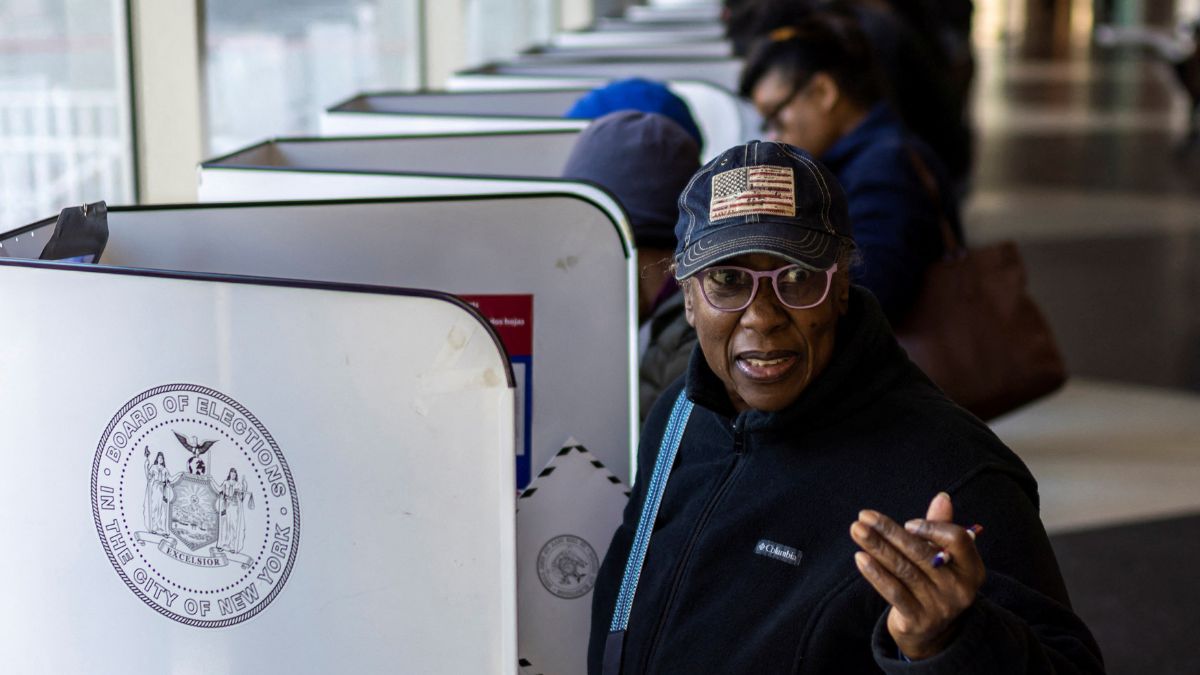It’s more than just Harris versus Trump on November 5.
Voters in the United States will not only decide on their next president but will also vote for new congressional members, thousands of state and local officials, and weigh in on several key referendums, including those focused on divisive issues such as abortion.
US Vice President Kamala Harris, the Democratic candidate, faces former President Donald Trump, the Republican contender. Harris has named Tim Walz, the Governor of Minnesota, as her running mate, while Trump has selected JD Vance, Ohio’s senator since 2023, to join his ticket.
ALSO READ | Why does the US still rely on paper ballots for its elections?
Polls show an extremely close race, with only a few thousand votes in critical swing states potentially deciding the winner. Major election issues include the economy, healthcare, climate change, immigration, national security, and social justice.
This will be the first presidential election since the Capitol attack of January 6, 2021, making it a stress test for the new security measures Congress has established to preserve the tradition of peaceful transitions of power.
According to recent polling by The Associated Press-NORC Centre for Public Affairs Research, American voters are entering this election season with several concerns over what may come next.
Here is a look at who and what is up for a vote beyond the choice between Trump and Harris:
Congress
In addition to choosing a president, millions of US voters will decide the fate of Congress: both in the House of Representatives – where all seats are up for grabs – and the Senate, where one-third are.
The House of Representatives has 435 members, with each representing a Congressional district and elected for a two-year term. Republicans hold the House by a small margin, but with Harris’s entry into the race, Democrats are hoping to benefit from a surge in enthusiasm to recapture the lower house
Thirty-four of the Senate’s 100 seats are in play. The Senate consists of two senators from every state, who hold six-year terms. Democrats are in control now, but Republicans are hoping to reverse the situation.
If the same party were to win the presidency and both houses of Congress, it would have the power to push through the president’s agenda without support from opposition lawmakers.
Governors
Gubernatorial elections will occur in 11 of the 50 US states, with key races in New Hampshire, North Carolina and Washington state.
The governor is the top executive at the state level, where most powers that do not belong to the federal government lie.
ALSO READ | Will US election winner be declared on November 5? Don’t hold your breath
Referendums
Since the federal right to an abortion was overturned in 2022 by the Supreme Court, the issue has been ever-present on the political landscape.
Democrats have often used the debate over reproductive rights to dissuade women voters from casting ballots for Republicans.
Abortion rights will be the subject of referendums in 11 states, 10 of which are on whether to establish state-level abortion guarantees. Voters in Nebraska will decide whether the possibility of abortion should be limited to the first trimester.
In dozens of states, voters are being asked to decide on a variety of other issues.
In Colorado, for example, voters will vote on whether or not to ban “trophy hunting” of mountain lions, bobcats and lynx.
And in Maine, voters will decide if they want to change their state flag.
ALSO READ | From courtrooms to campaign chaos: Five defining moments of the US election
Local elections
Thousands of local offices will also be up for election, including state-level lawmakers, judges, mayors, city council members, county officials, sheriffs and others.
Millions of Americans have already voted ahead of the November 5 election, which national polling - including the latest from Reuters/Ipsos and swing state surveys - indicates is a tight race between Donald Trump and his Kamala Harris.
Nearly 46 million Americans have cast their votes early, according to data from the University of Florida’s Election Lab. This includes around 2.8 million early voters in Georgia and 1.9 million in Michigan, where Harris campaigned on Monday.
These figures are slightly lower than the 60 million early votes cast by this stage in 2020 during the peak of the COVID-19 pandemic.
Notably, the Democratic National Committee estimates that 1.6 million US citizens living abroad are eligible to vote in one of seven key battleground states - Arizona, Georgia, Michigan, Nevada, North Carolina, Pennsylvania, and Wisconsin - where the election outcome is likely to be decided.
With inputs from AFP


)

)
)
)
)
)
)
)
)



